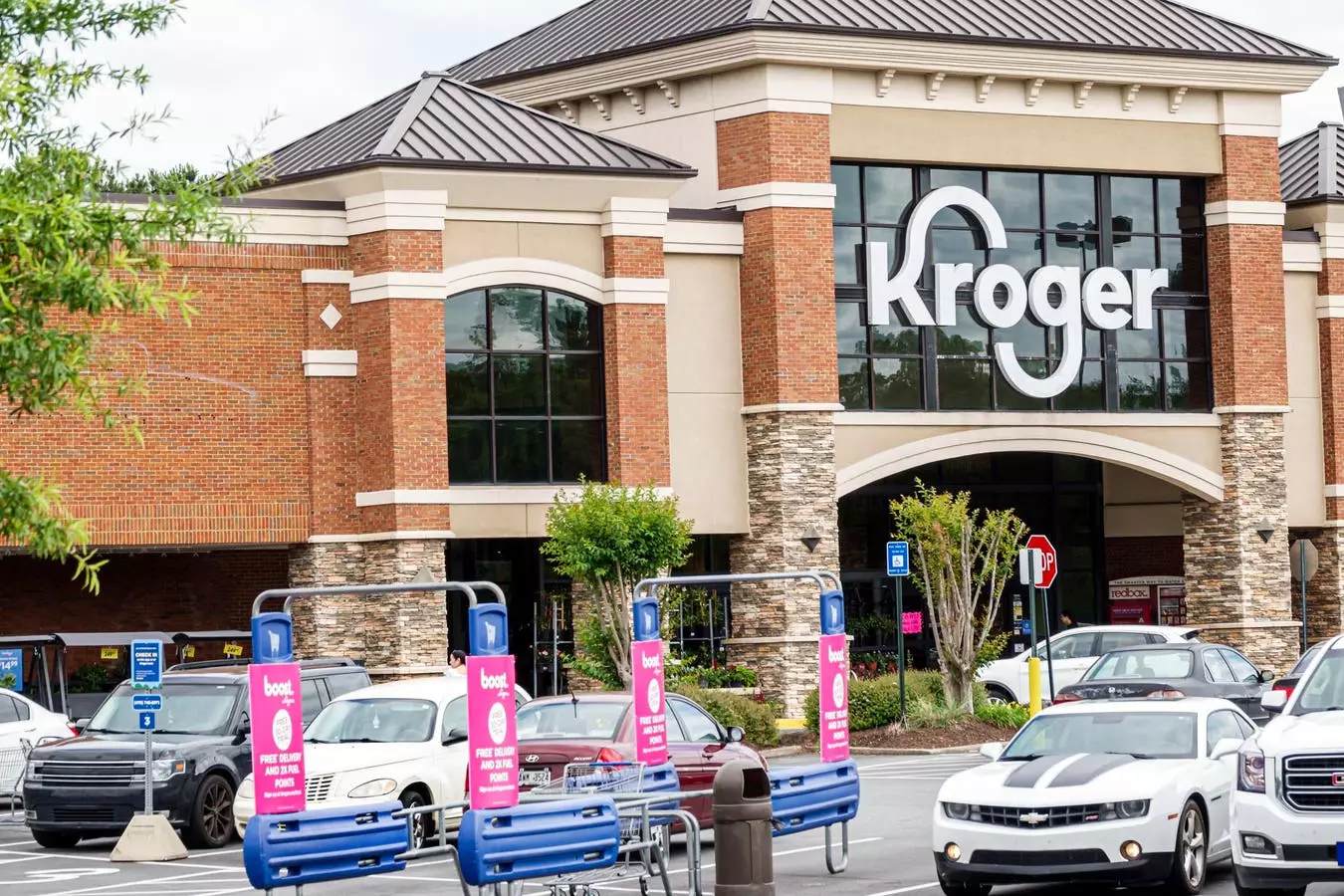The recent judicial ruling against the proposed $25 billion merger between grocery giants Kroger and Albertsons is a substantial moment in the landscape of American retail and consumer rights. With both a federal judge and a King County judge in Washington state delivering the verdict, this decision is celebrated not just by consumers, but also by grocery workers, small suppliers, and advocates for antitrust regulations. The implications of this ruling ripple through various layers of industry, emphasizing the critical need for a competitive marketplace that genuinely serves the public interest.
Kroger and Albertsons presented their case, arguing that the merger was necessary to enhance their competitiveness against retail giants like Walmart and Amazon. The companies claimed that divesting 579 stores would maintain a degree of competition post-merger. However, this logic is fraught with issues. Eliminating a substantial competitor, even with the promise of selling off a portion of assets, ultimately leads to heightened market concentration. The reality is that both Kroger and Albertsons already hold significant shares in various regional markets; their merger would only entrench their dominance further. The decision to block the merger serves as a reminder of the historical context in which antitrust laws were established to protect consumers from monopolistic practices.
The Federal Trade Commission (FTC) argued convincingly that such a merger would not only drive up grocery prices but also diminish the bargaining power of unions. As consumers consider the rise in grocery bills, the potential loss of competition becomes a central concern. When fewer players control more market share, the opportunity for price negotiation dwindles, often leading to a market where consumers find themselves without viable alternatives.
The Role of Unions in Protecting Worker Rights
The unified statement from the coalition of UFCW (United Food and Commercial Workers) local unions states a fundamental truth: mega-mergers like this one pose a significant threat to the rights and livelihoods of grocery workers. By reducing the number of major employers in the market, the merger would erode the leverage that unions currently possess to negotiate better wages and working conditions. The ability to threaten a strike against one employer is weakened when options for employment become scarce.
Labor organizations have emerged as crucial advocates for both workers and consumers, highlighting how corporate consolidation often translates to diminished power for both groups. The ruling against the merger highlights an essential victory not only for consumer advocacy but also for the workers who deserve fair treatment and compensation in a competitive market.
The argument surrounding the merger raises larger questions about the dynamics of retail competition and economic power in the United States. The concentration of grocery retail sales is staggering: the top six grocery chains account for 65% of all sales. This concentration leads to a trickle-down effect in the supply chain, affecting the consumer packaged goods (CPG) sector significantly. The dominance of a few corporations results in inflated prices across the board, as proven by data showing that grocery prices have surged by over 30% since 2020, yet unit volumes remain stagnant or even declining.
The term “sellers inflation” used by economists provides a framework to understand how companies can exploit situations like the pandemic and global crises to raise prices beyond reasonable limits. This economic phenomenon is not merely a product of supply chain disruptions but also reflects an opportunity seized by these corporations to maximize profit margins, often to the detriment of consumers.
Looking Ahead: The Future of Grocery and Antitrust Initiatives
The decision to block the Kroger-Albertsons merger is not just a single victory; it symbolizes a broader movement towards a reassessment of market structures and corporate power. While this ruling represents hope for antitrust and labor advocates, it is vital to recognize that systemic issues still loom within the grocery industry. From labor shortages and food deserts to the long-term impacts of climate change, the challenges ahead require comprehensive solutions that extend beyond individual mergers.
Envisioning a future where grocery markets are more diversified could lead to improved working conditions and better-quality produce. This could manifest in a model that emphasizes localized ownership, equitable labor practices, and sustainable sourcing. Such changes could transform grocery shopping from a transactional experience into a community-centric model, reducing reliance on towering conglomerates while supporting local economies.
The defeat of the Kroger-Albertsons merger represents an essential step forward in championing the rights of consumers and workers alike. It underscores the importance of maintaining an economic landscape that prioritizes fairness and competition over unchecked corporate power. The hope is that this decision will pave the way for thoughtful considerations of market structures that ultimately lead to a more equitable and sustainable grocery industry.


Leave a Reply